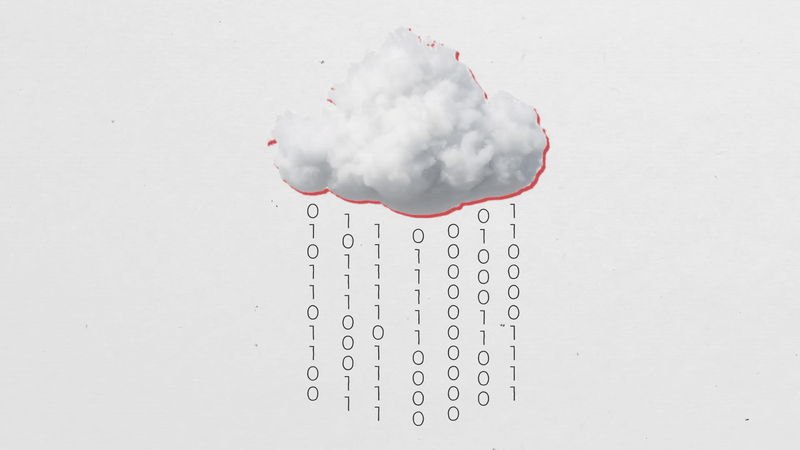For some years, we have been using the phrase “data is the oil of the 21st century” but without specifying much. However, it seems we can now finally really talk about a data economy, in regards to consumers and activities of a more business or industrial nature – and all using massive amounts of personal and non-personal data (which are worth as much as each other.)
As the data economy flourishes, it comes with many opportunities, but also threats. The Chairman and CEO of Telefónica, Jose Maria Alvarez-Pallete, recently warned about “digital slavery” and the possible uncontrolled use of personal data by companies. He writes, “If data represents a new factor of production, privacy should be the element that determines its value. Furthermore, each of us, as sovereign individuals, must determine the level of privacy we wish to have and, consequently, the value of our data. Failing that, we would simply be mining data daily whilst others benefited from a value that belongs to us, thus determining the level of privacy awarded to us.” But, according to Alvarez-Pallete, there does exist a business model that respects data protection regulations while continuing to keep profit a priority and this is the path that Telefónica is attempting.
It should be remembered that privacy, as it is conceived in Europe, is more than a set of tiresome obligations. It is a rule that is clearly related to constitutional rights. The global influence of the General Data Protection Regulation (GDPR) is evident thanks to the fact that Europe enacted such a rule. The principle is that if companies want to do business with European citizens’ data, they must do so in accordance with European rules. The rule has worked and its influence has spread.
For example, China has enacted the Personal Information Protection Law (PIPL), a regulation inspired by the GDPR. For the time being, however, it faces many uncertainties regarding its application. This is due, among other things, to the fact that the law is not only intended to protect consumers but also includes national security issues. These uncertainties come as no surprise; the first steps of the GDPR gave rise to many doubts and debates, and even today they continue to pop up from time to time.
Within a few years’ time, it is highly likely that the world will be speaking a similar, if not the same, privacy language.
In the United States, California and other states have rules inspired by or similar to the GDPR, and the need for a federal law along the same lines is also being considered (while several members of Congress have recognized the need for a federal law, issues of state jurisdiction must be resolved.) Likewise, Latin America is no stranger to this European influence and, in fact, some countries, including Argentina, Brasil, Panama, Uruguay, and Chile, have enacted data protection laws inspired by the old directive and are currently adapting their regulations with a certain European inspiration.
Everything points to the fact that, within a few years’ time, it is highly likely that the world will be speaking a similar, if not the same, privacy language.
But there is more to consider and that is non-personal data. This type of information is not identified with a particular individual – such as demographic data and that produced by machines such as wind turbine, cars, and home appliances – yet still has fruitful benefits for the data economy.
When the European Union launched its Digital Single Market initiative in 2015, it included the “economy and society” pillar, which focused on the creation of a data economy that is appropriate to the European model. Since then, the EU has issued communications, recommendations, and regulations that set the European Union on the path to a European model data economy, for example:
- Communication towards a common European data space
- From the Public Sector Information (PSI) Directive to the Open Data Directive Recommendation on access to and preservation of scientific information
- Creation of the European Open Science Cloud
- Working Document – Guidance on sharing private sector data in the European data economy
- Regulation on a framework for the free flow of non-personal data in the EU
- White Paper on Artificial Intelligence: a European approach to excellence and trust
- Communication on a European Strategy for Data
- Proposal for a European Data Governance Act
A legal edifice under construction, to which the very recent proposal for a Data Act of February 23 to create measures for a fair and innovative data economy has been incorporated and possible business models within the European framework are already outlined.
The business model proposed by the EU is based on public-private cooperation, but also on cooperation between large companies and SMEs. In the European business ecosystem, there are large industrial companies that are making an effort to develop Industry 4.0. Cooperation with SMEs, agile and technologically advanced companies, is an advantage for large companies. But, it is also an advantage for these SMEs because it facilitates the scalability of their advanced solutions. This is why the European model encourages the creation of common spaces and the sharing of data within a sector and between sectors: in order to make the most of their utilities.
This economic model is based on a legal framework governed by respect for data protection, consumer protection, and competition rules. It is a regulatory framework that seeks a balance between the interests of companies and those of citizens – an economic harmony that harms no one and avoids abuses of all kinds.
There is no doubt that the data economy is already a reality and the legal framework is and will be very important to create a suitable environment for its development around the world. Let’s consider, for example, Latin America – a region that has an important role to play and also has the necessary elements: a sufficiently large and young population, a common language that allows usage throughout almost the entire territory, a good mix of large and small companies, and an ecosystem of universities and high-level research. In fact, these characteristics are not very different from those of Europe, which is why Latin America can find inspiration from Europe and foster a common economic space.
For all of us, around the world, it is important that regions, countries, and states work to prevent companies from absorbing and exploiting the economic value of data. It is essential that we have and maintain data sovereignty and continue to create environments and standards that are respectful of the principles that govern this new economy.
© IE Insights.











